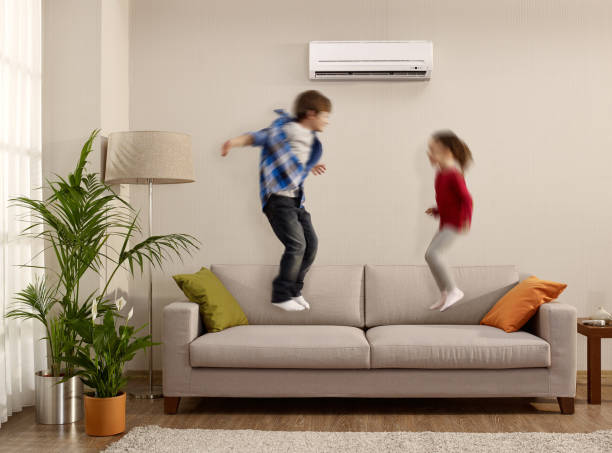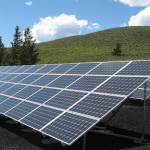What You Need to Know About HVAC Systems

HVAC (Heating, Ventilation, and Air Conditioning) systems play a crucial role in maintaining a comfortable and healthy indoor environment. Whether you’re a homeowner or a business owner, understanding the basics of HVAC systems is essential. In this article, we will explore the key components, functions, maintenance tips, and energy-saving techniques related to HVAC systems.
Components of an HVAC System:
- An HVAC system consists of several key components:
- Heating: Furnaces, boilers, heat pumps, or electric heaters are responsible for providing warmth during colder months.
- Ventilation: This component ensures fresh air circulation and removes indoor pollutants. It includes air ducts, fans, and filters.
- Air Conditioning: Cooling is achieved through central air conditioning units, split systems, or window units.
- Controls and Thermostats: These devices regulate and monitor the temperature and operation of the HVAC system.
- Functions of an HVAC System:
- Temperature Regulation: HVAC systems maintain a desired temperature range to ensure comfort and productivity.
- Humidity Control: Proper humidity levels are vital for occupant comfort and for preventing mold growth.
- Air Filtration: HVAC filters trap dust, pollen, and other airborne particles, improving indoor air quality.
- Ventilation: Fresh air intake and exhaust systems replenish indoor air and remove pollutants.
HVAC Maintenance:
- Regular maintenance is crucial for optimal HVAC system performance and longevity. Consider the following maintenance tips:
- Filter Replacement: Clean or replace air filters regularly to prevent clogging and ensure efficient airflow.
- Duct Cleaning: Periodically clean ducts to remove dust, debris, and potential contaminants.
- System Inspections: Schedule annual professional inspections to identify and address any issues promptly.
- Coil Cleaning: Clean the evaporator and condenser coils to maintain efficient heat transfer.
- Regular Tune-Ups: Hire a professional technician to inspect and tune up your HVAC system regularly.
Energy-Saving Techniques:
- To maximize energy efficiency and reduce utility bills, consider implementing these techniques:
- Programmable Thermostats: Set temperature schedules to align with occupancy patterns and save energy during unoccupied periods.
- Zoning Systems: Divide your property into zones with independent temperature controls for personalized comfort and energy savings.
- Proper Insulation: Ensure your property is well-insulated to minimize heat transfer and reduce the workload on your HVAC Repair Service in Tampa FL.
- Regular Maintenance: A well-maintained system operates efficiently and consumes less energy.
Types of HVAC Systems:
- There are various types of HVAC systems available, each suited for different applications and environments. Here are a few common types:
- Split Systems: Split systems consist of separate units for heating and cooling. They typically include an outdoor unit (containing the condenser and compressor) and an indoor unit (housing the evaporator coil and blower). Split systems are commonly used in residential settings.
- Packaged Systems: In packaged systems, all components (heating, cooling, and ventilation) are housed in a single unit. These systems are usually installed on rooftops or in mechanical rooms of commercial buildings.
- Heat Pumps: Heat pumps provide both heating and cooling capabilities by extracting heat from the air or ground and transferring it indoors or outdoors, depending on the desired temperature.
- Ductless Mini-Split Systems: These systems do not require ductwork and are ideal for heating or cooling individual rooms or spaces. They consist of an outdoor unit connected to one or more indoor units, allowing for independent temperature control.
Energy Efficiency Ratings:
- When purchasing or upgrading an HVAC system, it’s important to consider energy efficiency ratings. The following ratings are commonly used:
- Seasonal Energy Efficiency Ratio (SEER): SEER measures the cooling efficiency of an air conditioner or heat pump. Higher SEER ratings indicate greater efficiency.
- Annual Fuel Utilization Efficiency (AFUE): AFUE measures the heating efficiency of furnaces and boilers. It represents the percentage of fuel converted into heat. Higher AFUE ratings indicate better efficiency.
- Energy Efficiency Ratio (EER): EER measures the cooling efficiency of air conditioners at a specific outdoor temperature. Higher EER ratings indicate better energy efficiency.
Indoor Air Quality Considerations:
- HVAC systems play a vital role in maintaining indoor air quality (IAQ). Here are a few factors to consider:
- Air Filters: Choose high-quality air filters and replace them regularly to trap airborne pollutants and allergens.
- Ventilation: Proper ventilation helps remove stale air and introduces fresh outdoor air, reducing the concentration of indoor pollutants.
- Humidity Control: Excess humidity can lead to mold growth, while low humidity can cause dryness and discomfort. HVAC systems can help regulate humidity levels for optimal comfort and IAQ.
- Air Purification: Consider integrating air purification technologies, such as UV lights or electrostatic filters, into your HVAC system to enhance IAQ further.
Smart HVAC Systems:
- Advancements in technology have led to the development of smart HVAC systems. These systems can be controlled and monitored remotely through mobile apps or smart home devices. They offer features such as temperature scheduling, energy usage tracking, and remote troubleshooting, providing convenience and energy savings.
The Importance of Professional Installation and Maintenance:
- While there are DIY maintenance tasks you can perform, it’s essential to hire professionals for installation and regular maintenance. Qualified technicians have the expertise to ensure proper system installation, identify potential issues, and perform necessary repairs or tune-ups. Professional maintenance helps optimize performance, prevent breakdowns, and prolong the lifespan of your HVAC system.
Conclusion:
HVAC systems are vital for maintaining a comfortable and healthy indoor environment. By understanding the different types of systems, energy efficiency ratings, indoor air quality considerations, and the benefits of professional installation and maintenance, you can make informed decisions to maximize comfort, energy savings, and longevity of your HVAC system. Always consult with HVAC professionals for personalized guidance and assistance tailored to your specific needs.








